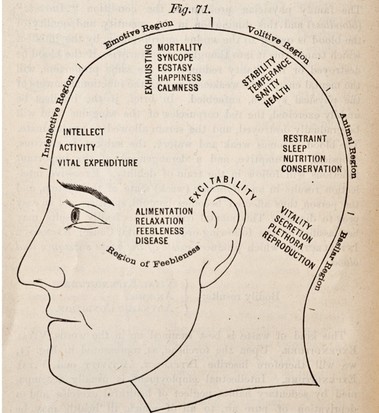Welcome to the Wakefield Doctrine (the theory of clarks, scotts and rogers)
This is the Doctrine’s contribution to the Six Sentence Story bloghop.
Hosted by Denise
Here’s a Six3 that’s a little different. It’s a combination of two creativity wrinkles (probably not a real thing, yet) arising from a) reading Keith’s Six and 2) morning earworm.
This week’s prompt word:
ERUPTION
“The degree to which a man or woman, in later life, is vulnerable to the soft torture of what is commonly referred to as an earworm, is directly proportional to their capacity to link emotion to music in early life;” The expression on the face in the bathroom mirror might have qualified as mocking, had it not felt true.
“Fine,” the reflection, eyes averted, continued, “Lay it all on a process as beyond conscious control and manipulation as the fading of a painful memory, the audience out there still expects an explanation and the prompt word.”
“It’s tempting to believe that everyone enjoys music, that it is a quality central to Life, but you need to explain the increasing frequency of earworms as the calendar sheds time and the seasons pass; not to mention the…. vintage quality to the catalogue.”
“Sure,” the reflection responded with charming confidence, “‘Eruption’ (and it’s host album) sold ten million copies, but how often do you spend the day with Eddie’s ‘kitchen sink’ instrumental on permanent loop in your head?”
“Simple, while it’s clear that what some of us wake up to, playing in our minds is music that is linked to some emotionally-significant moments in our lives, what is less obvious is the correlation between this and the tendency of the person to hold the emotion of the moment at arm’s length, especially during the emotional Wild West of early life; this is the tell-tale for a predisposition to late-life chronic earworm.”
“…itis” both reflection and orgin laughed, “Be sure you include that in your closing remarks, now get out there, the Readers are getting impatient.”
*


 About clarkscottroger
About clarkscottroger
My most memorable earworm was The Trashmen’s “The Bird Is the Word” which I don’t recommend anyone listening to. The best way to get rid of an earworm is to replace it with another one. It is hard to listen to two songs at the same time.
totally concur on the only effective, if not temporary, cure
I don’t find earworms torturous, Clark, well, not personally. If I vocalise them, then they become torturous!
You and me both, Mr. Tom. The fact is, my husband, Sweetie, sings in the choir and i help the choir by not singing.
You can almost always drive out an earworm by singing, “It’s a Small World,” but this is one of those cases where the cure may well be worse than the disease.
lol
…after all
The theory postulated in sentence 1 makes? Makes sense to me.
And then comes sentence 5.
Alas, I know of no effective method for dispatching the pesky earworm.
agreed
A thought…(since my laptop decided to delete my comment before i press publish, I will start from the end and pray I will make any sense lol)
Mechanical analogy of what I will write afterwards(hopefully):
when my tinitus appeared I decided to fight fire with fire. Meaning that this damned thing h a s a frequency; so, if I bombard it with other frequencies I may find the one that creates the physics phenomenon where they cancel each other out.
Bought a pair of primo headphones, sensed it’s damned frequency of the day, started to blast it with the music ones that will drown it/cancel it out.
Does it work? More often than not.
Does it go away forever? No.
Will it come back? Yes, it fn does.
Do I feel better after i cancel it? Yes.
Does that increase the chance of me canceling it, next time it visits? I believe so.
My initial thought from your comment Denise that dispatching won’t work, was: what if we tried to dissipate it with a flux of fre(e)quencies?
Outstanding piece!
Thank you, Reena
… is directly proportional to their capacity to link emotion to music, you say insightfully.
I would add, if I may, that is (for some of us) of umbilical cord quality/importance.
Masterfully weaved.
ty, yo
ty